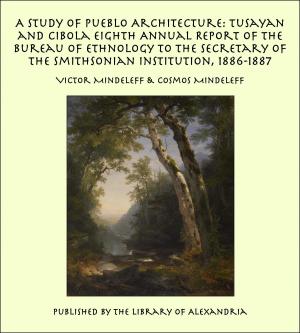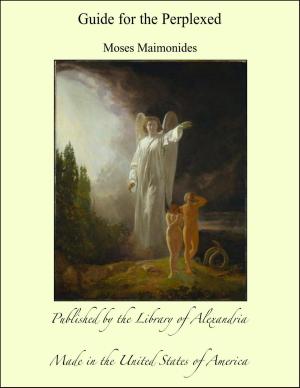A Discourse on the Plague
Nonfiction, Religion & Spirituality, New Age, History, Fiction & Literature| Author: | Richard Mead | ISBN: | 9781465610928 |
| Publisher: | Library of Alexandria | Publication: | March 8, 2015 |
| Imprint: | Language: | English |
| Author: | Richard Mead |
| ISBN: | 9781465610928 |
| Publisher: | Library of Alexandria |
| Publication: | March 8, 2015 |
| Imprint: | |
| Language: | English |
MY Design in this Discourse being to propose what Measures I think most proper to defend the Nation against the Plague, and for this End to consider the Nature of Pestilential Contagion as far as is necessary to set forth the Reasonableness of the Precepts I shall lay down; before I proceed to any particular Directions, I shall enquire a little into the Causes, whence the Plague arises, and by what Means the Infection of it is spread. In the most ancient Times Plagues, like many other Diseases, were looked upon as divine Judgments sent to punish the Wickedness of Mankind: and therefore the only Defence sought after was by Sacrifices and Lustrations to appease the Anger of incensed Heaven. How much soever may be said to justify Reflexions of this Kind, since we are assured from sacred History, that divine Vengeance has been sometimes executed by Plagues; yet it is certain, that such Speculations pushed too far, were then attended with ill Consequences, by obstructing Inquiries into natural Causes, and encouraging a supine Submission to those Evils: against which the infinitely good and wise Author of Nature has in most Cases provided proper Remedies. Upon this Account, in After-Ages, when the Profession of Physick came to be founded upon the Knowledge of Nature, Hippocrates strenuously opposed this Opinion, that some particular Sicknesses were Divine, or sent immediately from the Gods; and affirmed, that no Diseases came more from the Gods than others, all coming from them, and yet all owning their proper natural Causes: that the Sun, Cold, and Winds were divine; the Changes of which, and their Influences on human Bodies, were diligently to be considered by a Physician. Which general Position this great Author of Physick intended to be understood with respect to Plagues as well as other Distempers: How far he had reason herein, will in some measure appear, when we come to search into the Causes of this Disease. But in order to this Inquiry, it will be convenient, in the first place, to remove an erroneous Opinion some have entertained, that the Plague differs not from a common Fever in any thing besides its greater Violence. Whereas it is very evident, that since the Small-Pox and Measles are allowed to be Distempers distinct in Specie from all others, on account of certain Symptoms peculiar to them; so, for the same reason, it ought to be granted, that the Plague no less differs in Kind from ordinary Fevers: For there are a Set of distinguishing Symptoms as essential to the Pestilence, as the respective Eruptions are to the Small-Pox or Measles; which are indeed (as I have mentioned in the Preface) each of them Plagues of a particular kind.
MY Design in this Discourse being to propose what Measures I think most proper to defend the Nation against the Plague, and for this End to consider the Nature of Pestilential Contagion as far as is necessary to set forth the Reasonableness of the Precepts I shall lay down; before I proceed to any particular Directions, I shall enquire a little into the Causes, whence the Plague arises, and by what Means the Infection of it is spread. In the most ancient Times Plagues, like many other Diseases, were looked upon as divine Judgments sent to punish the Wickedness of Mankind: and therefore the only Defence sought after was by Sacrifices and Lustrations to appease the Anger of incensed Heaven. How much soever may be said to justify Reflexions of this Kind, since we are assured from sacred History, that divine Vengeance has been sometimes executed by Plagues; yet it is certain, that such Speculations pushed too far, were then attended with ill Consequences, by obstructing Inquiries into natural Causes, and encouraging a supine Submission to those Evils: against which the infinitely good and wise Author of Nature has in most Cases provided proper Remedies. Upon this Account, in After-Ages, when the Profession of Physick came to be founded upon the Knowledge of Nature, Hippocrates strenuously opposed this Opinion, that some particular Sicknesses were Divine, or sent immediately from the Gods; and affirmed, that no Diseases came more from the Gods than others, all coming from them, and yet all owning their proper natural Causes: that the Sun, Cold, and Winds were divine; the Changes of which, and their Influences on human Bodies, were diligently to be considered by a Physician. Which general Position this great Author of Physick intended to be understood with respect to Plagues as well as other Distempers: How far he had reason herein, will in some measure appear, when we come to search into the Causes of this Disease. But in order to this Inquiry, it will be convenient, in the first place, to remove an erroneous Opinion some have entertained, that the Plague differs not from a common Fever in any thing besides its greater Violence. Whereas it is very evident, that since the Small-Pox and Measles are allowed to be Distempers distinct in Specie from all others, on account of certain Symptoms peculiar to them; so, for the same reason, it ought to be granted, that the Plague no less differs in Kind from ordinary Fevers: For there are a Set of distinguishing Symptoms as essential to the Pestilence, as the respective Eruptions are to the Small-Pox or Measles; which are indeed (as I have mentioned in the Preface) each of them Plagues of a particular kind.















